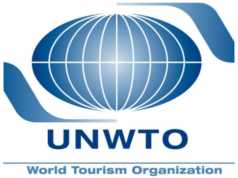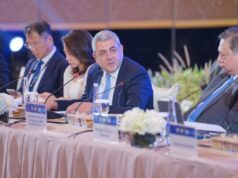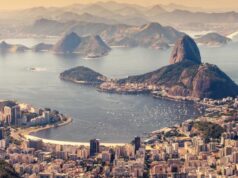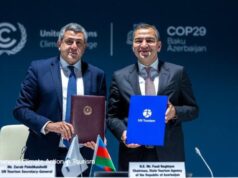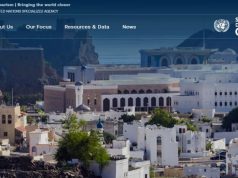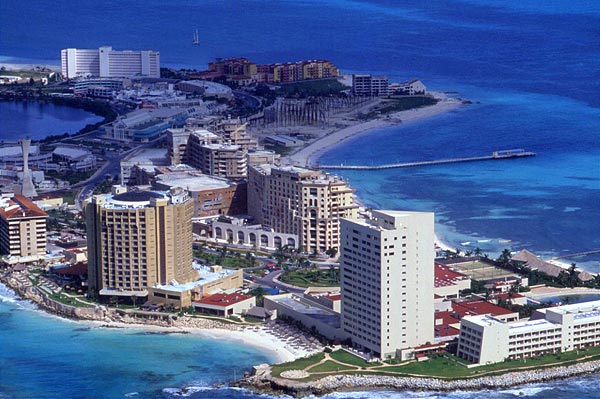 As negotiations at the United Nations Climate Change Conference (COP16) are held in Mexico, the role of tourism in combating global warming should once again be highlighted. A COP16 side-event, organized jointly by the Ministry of Tourism of Mexico and UNWTO, ‘Tourism’s response to climate change: What’s next? has outlined the progress made by the sector to mitigate its impact and adapt to one of today’s biggest challenges (Cancun, Mexico, 6 December). Opening the event, Mexico’s President, Felipe Calderón, stated that, “tourism is perfectly compatible with the environment,” and that focus must be placed on tourism’s “environmental calling”.
As negotiations at the United Nations Climate Change Conference (COP16) are held in Mexico, the role of tourism in combating global warming should once again be highlighted. A COP16 side-event, organized jointly by the Ministry of Tourism of Mexico and UNWTO, ‘Tourism’s response to climate change: What’s next? has outlined the progress made by the sector to mitigate its impact and adapt to one of today’s biggest challenges (Cancun, Mexico, 6 December). Opening the event, Mexico’s President, Felipe Calderón, stated that, “tourism is perfectly compatible with the environment,” and that focus must be placed on tourism’s “environmental calling”.
President Felipe Calderón, stressed that economic growth need not come at the expense of environmental decline, highlighting tourism as a sector able to provide growth and jobs while mitigating and adapting to climate change.
“Our natural resources can and should coexist with tourism,” said Mexico’s Minsiter of Tourism, Gloria Guevara, addressing participants. Ms. Guevara pointed to Mexico as a country whose rich natural resources sustain a large part of its tourism activity, in turn representing “9% of Mexico’s GDP and over seven million direct and indirect jobs”. There must be no delay in protecting this biological diversity, for its own sake, but also to maintain tourism’s socio-economic contribution, she said.
The side-event, organized by the Ministry of Tourism of Mexico and UNWTO, presented the work undertaken so far by the tourism public and private sectors to mitigate greenhouse gas emissions, promote adaption in tourism businesses and destinations, invest in new technologies and support developing countries through financing. In particular, participants underlined the vulnerability of certain tourism destinations in developing countries to the devastating impacts of climate change, ranging from rising sea levels and the destruction of coral reefs, to the loss of basic tourism services such as water supply and food security.
Recalling the importance of taking a global approach towards tourism, aviation and climate change, UNWTO Secretary-General, Taleb Rifai said “developing destinations, highly dependent on international tourism for income and jobs, would be doubly affected, given their distance to major markets and limited domestic markets, if exposed to increasingly stringent emissions policy on aviation. We are particularly concerned about the potential duplication of taxation on emissions on travel, namely on air transport”.
International air transport has been singled out for separate mitigation treatment under the United Nations Framework Convention on Climate Change (UNFCCC). It is crucial to consider that any mitigation measures adopted in this respect will significantly impact the tourism sector as a whole, particularly developing countries.
Against this background, UNWTO highlighted its work with the International Civil Aviation Organization (ICAO) and the United Nations Environment Programme (UNEP), to address aviation emissions at the global level and Hotel Energy Solutions, a project aimed at increasing energy efficiency and renewable energy use in small and medium hotels.


